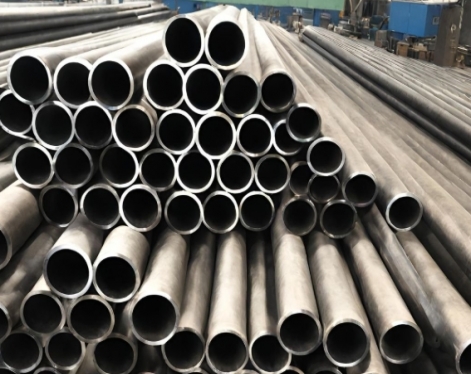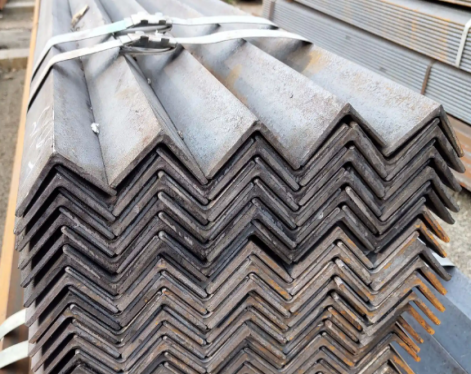With the rapid development of modern industrial technology, boiler tubes, as key equipment components, have increasingly stringent performance and quality requirements. As a high-quality seamless steel tube for boilers, its heat treatment process is of great significance for improving product performance and ensuring safe and stable operation of equipment. This article will explore the innovation and application of boiler tube heat treatment process.
The importance of heat treatment process
Heat treatment is a key link in the production process of boiler tubes. Through heating, insulation, cooling and other processes, the internal structure and performance of the material are improved, and the strength, toughness, corrosion resistance, etc. of the steel tube are improved. Reasonable heat treatment process can not only improve product quality, but also extend the service life of equipment and reduce maintenance costs.

Innovation of heat treatment process
In recent years, with the continuous development of material science and heat treatment technology, boiler tube heat treatment process has also achieved significant innovation. Specifically, it is manifested in the following aspects:
Optimization of heating methods: Traditional heating methods mostly use resistance heating or gas heating, which have problems such as high energy consumption and uneven heating. Now, more and more manufacturers are beginning to use induction heating technology, which uses the principle of electromagnetic induction to generate eddy currents inside the steel pipe, thereby achieving rapid and uniform heating.
Adjustment of cooling rate: Cooling rate is one of the key parameters in the heat treatment process. By adjusting the cooling rate, the structure and performance of the steel pipe can be controlled. Modern heat treatment technology achieves precise regulation of steel pipe performance by precisely controlling the cooling rate.
Application of heat treatment process
The innovation of boiler tube heat treatment process not only improves product quality, but is also widely used in various high-pressure boiler equipment. For example, in the power industry, high-pressure boilers are an important part of the power generation system, and their safety and stability are crucial to the operation of the entire power system. Using boiler tubes as key components and improving the performance of steel tubes through reasonable heat treatment processes can ensure the safe and stable operation of high-pressure boilers.
In short, the innovation and application of boiler tube heat treatment technology is an important manifestation of the development of modern industrial technology. Through continuous technological innovation and application practice, the boiler tube industry can be promoted to develop in the direction of higher performance, safer and more environmentally friendly.
What are the anti-corrosion measures for boiler tubes?
Boiler tubes will rust after being used for a period of time, affecting normal use. So how to do a good job of boiler tube anti-corrosion measures?
The general boiler tube rust removal and anti-corrosion is as follows: immediately apply rust conversion paint on the rusty area, and the polymer will react when it touches the rust. After the conversion, the color is gray and black, and the adhesion is very strong. It can be treated with anti-rust treatment for 2 years independently, or it can be matched with other paints. After chemical water treatment, it can be treated with vapor phase rust inhibitor. The vapor phase rust inhibitor can be packed into bags and strung inside, or the vapor phase rust inhibitor can be blown in with a blower motor. It is simple and easy.
Boiler tube anti-corrosion measures: The surface of the boiler tube is made of high-density polyethylene material with high impact toughness and good corrosion resistance, which can protect it from damage caused by external factors during transportation, installation and use.
Reminder: Because high-pressure polyethylene outer tubes are easy to erode, outdoor storage must be covered with awnings and other materials, and high heat sources and open flames should be avoided in the stacking area. After the anti-corrosion boiler tube is made, it is strictly prohibited to expose it to the sun or quench it, otherwise it is easy to crack, affecting the product properties and service life.
Read more: How To Detect The Thickness of Boiler Tubes?
The importance of heat treatment process
Heat treatment is a key link in the production process of boiler tubes. Through heating, insulation, cooling and other processes, the internal structure and performance of the material are improved, and the strength, toughness, corrosion resistance, etc. of the steel tube are improved. Reasonable heat treatment process can not only improve product quality, but also extend the service life of equipment and reduce maintenance costs.

Innovation of heat treatment process
In recent years, with the continuous development of material science and heat treatment technology, boiler tube heat treatment process has also achieved significant innovation. Specifically, it is manifested in the following aspects:
Optimization of heating methods: Traditional heating methods mostly use resistance heating or gas heating, which have problems such as high energy consumption and uneven heating. Now, more and more manufacturers are beginning to use induction heating technology, which uses the principle of electromagnetic induction to generate eddy currents inside the steel pipe, thereby achieving rapid and uniform heating.
Adjustment of cooling rate: Cooling rate is one of the key parameters in the heat treatment process. By adjusting the cooling rate, the structure and performance of the steel pipe can be controlled. Modern heat treatment technology achieves precise regulation of steel pipe performance by precisely controlling the cooling rate.
Application of heat treatment process
The innovation of boiler tube heat treatment process not only improves product quality, but is also widely used in various high-pressure boiler equipment. For example, in the power industry, high-pressure boilers are an important part of the power generation system, and their safety and stability are crucial to the operation of the entire power system. Using boiler tubes as key components and improving the performance of steel tubes through reasonable heat treatment processes can ensure the safe and stable operation of high-pressure boilers.
In short, the innovation and application of boiler tube heat treatment technology is an important manifestation of the development of modern industrial technology. Through continuous technological innovation and application practice, the boiler tube industry can be promoted to develop in the direction of higher performance, safer and more environmentally friendly.
What are the anti-corrosion measures for boiler tubes?
Boiler tubes will rust after being used for a period of time, affecting normal use. So how to do a good job of boiler tube anti-corrosion measures?
The general boiler tube rust removal and anti-corrosion is as follows: immediately apply rust conversion paint on the rusty area, and the polymer will react when it touches the rust. After the conversion, the color is gray and black, and the adhesion is very strong. It can be treated with anti-rust treatment for 2 years independently, or it can be matched with other paints. After chemical water treatment, it can be treated with vapor phase rust inhibitor. The vapor phase rust inhibitor can be packed into bags and strung inside, or the vapor phase rust inhibitor can be blown in with a blower motor. It is simple and easy.
Boiler tube anti-corrosion measures: The surface of the boiler tube is made of high-density polyethylene material with high impact toughness and good corrosion resistance, which can protect it from damage caused by external factors during transportation, installation and use.
Reminder: Because high-pressure polyethylene outer tubes are easy to erode, outdoor storage must be covered with awnings and other materials, and high heat sources and open flames should be avoided in the stacking area. After the anti-corrosion boiler tube is made, it is strictly prohibited to expose it to the sun or quench it, otherwise it is easy to crack, affecting the product properties and service life.
Read more: How To Detect The Thickness of Boiler Tubes?
Previous:How to Deal with Rusted H-beam?









